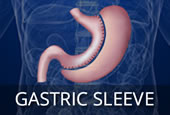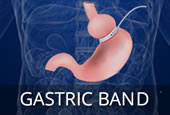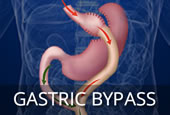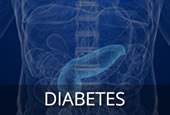Diabetes Weight Loss
What is diabetes?
When diabetes occurs, it indicates that the body cannot maintain a healthy level of sugar in the blood. Normally, sugar or glucose in the blood is converted into energy. When a “failure” occurs, the level of sugar builds up excessively and this can result in many health problems both in the short and long term.
Diabetes is a very serious chronic disorder as it contributes to many other health issues. Examples of these include…
- Heart attacks and brain strokes
- Kidney disease (known as diabetic nephropathy)
- Blindness (known as diabetic retinopathy)
- Changes in skin sensation- burning, pain, numbness (known as diabetic neuropathy).
- Long term nerve damage (neuropathy) can affect the joints and shape of typically the foot (known as Chacot’s foot)
- As it affects all small vessels of the body, it is a major contributor of limb amputations
As the utilization of sugar in the body is regulated by insulin (peptide hormone), it is crucial that the body achieves this balance. In fact, in most instances this is done with precision and therefore the range of blood sugar in the blood is tightly controlled.
The failure of the body to use the sugar can be as a result of an “inadequate” insulin production (eg. Type 1 diabetes) or a “resistance” to insulin (eg. Type 2 diabetes). Obesity increases the “resistance” to insulin. Hence to more insulin is needed to do the “same work”.
Apart from the classical types of diabetes (Type 1 and 2), there is “Gestational Diabetes” which occurs during pregnancy. This is a risk factor for the development of diabetes for both the mother and baby later in life. There is also “Pre-diabetes” which is the earlier form of Type 2 diabetes. This should serve as a strong caution of what is to occur in future.
Diabetes Weight Loss Surgery
There is a strong association between Type 2 diabetes, Gestational and Pre-diabetes with “obesity”. Fortunately, obesity is a potentially “modifiable” risk factor, meaning that a “modest reduction” in weight will assist greatly in the improvement of diabetes.
Not so long ago, bariatric surgery was used predominantly for weight loss. However, it had also consistently improved many cardiovascular risk factors. Some of these improvement included blood pressure, cholesterol, heart disease and diabetes. However it was underutilized for reasons of costs, access to surgery and the initial fear.
In recent times, an International Meeting by 20 leading experts in diabetes and bariatric surgery made a series of recommendations on the use of weight loss surgery as a cost effective treatment option for the severely obese people with Type 2 diabetes.
Type 2 diabetes in combination with Obesity poses as the biggest epidemic and public health issue in human history. It is estimated that there is approximately 300 million people affected worldwide by Type 2 diabetes.
Does surgery work for diabetes (Type 2)?
The postulated mechanisms of how weight loss improves diabetes.
- “Weight loss” leads to an improvement in insulin sensitivity and decreased insulin resistance. This means that the body requires “less” insulin to “get the same job done”. This effect is seen in the procedures such as the gastric band, gastric sleeve and gastric bypass.
- The “Bypass effect” is a complex augmentation and interaction of the body’s natural hormones and peptides. As food passes quickly into the small bowel it triggers this complex interaction and the end result is that the “sugars are suppressed”. This occurs regardless of weight loss. The “bypass effect” is seen in predominantly Gastric Bypass and Biliopancreatic diversion. Lesser in the Gastric Sleeve and EndoBarrier.
Bariatric Surgery is a powerful tool to cause remission of Type 2 diabetes in patients. However it is important to realize that Diabetes is a chronic disease like hypertension (high blood pressure), heart disease, asthma, depression and osteoporosis. This means that the degree of benefit or remission can be complete or partial.
As with any chronic disease, it is crucial that treatment must remain multi-disciplinary and ongoing input and monitoring is required from all clinicians and surgeons.
How much improvement?
The spectrum of improvement in diabetes as a result of bariatric surgery can be complete or partial.
In “complete remission”, it means that the improvement to the extent that medications are not required and that test results (HbA1c) are within normal limits.
In “partial remission”, it means a significant improvement in either reduction of medication use and improvement in test results (HbA1c). Often this is an improved combination of both aspects.
There have been two recent publications in the prestigious journal (New England Journal of Medicine- 2012, 2014) comparing surgery (gastric bypass and sleeve) with intensive medical therapy. This is a high quality randomized controlled trial. The results indicated that surgery has a five-fold (gastric sleeve) to eight-fold (gastric bypass) improvement and remission of diabetes (as indicated by a HbA1c of < 6%). Patients with bariatric surgery also required less diabetic medications.
Not forgetting that there are additional improvements in many health benefits and general well being, accompanying weight loss.
If you have diabetes or concerns about your weight and diabetes, we would love to hear from you. At Darebin Weight Loss Surgery, Melbourne, we have vast experience in metabolic surgery for diabetes.
Locations of Darebin Weight Loss Surgery
Key Consulting Locations
Suite 3, 195 Thompsons Road
Bulleen Vic 3105
1a/ 445 Grimshaw Street
Bundoora Vic 3083












